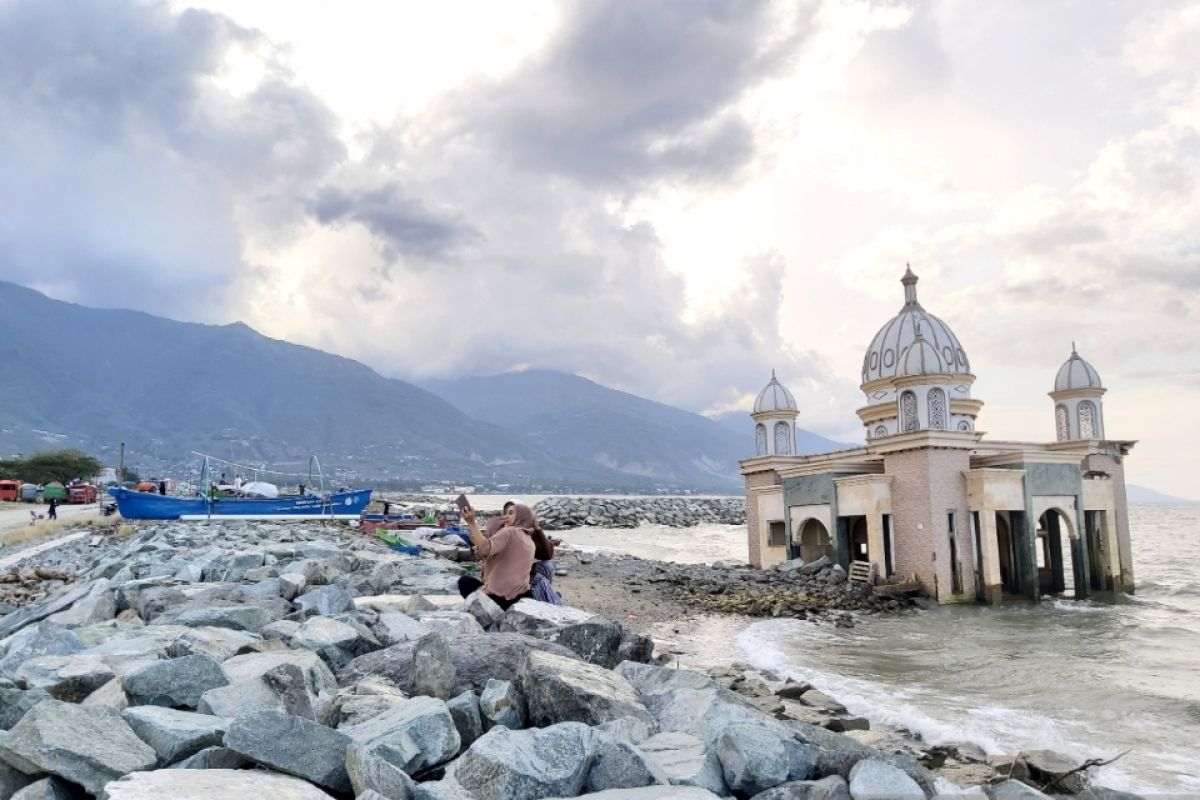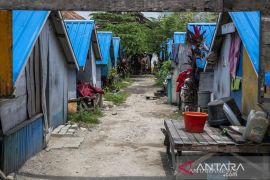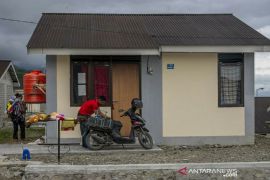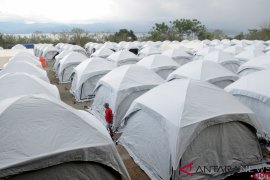As observed by ANTARA on Thursday, some people posed for pictures in the area with the floating Arkam Babul Rahman Mosque serving as the backdrop. The mosque was damaged by the tsunami but is still standing strong, although it cannot be used as a house of prayer anymore.
The floating mosque is evidence of how impactful the earthquake, tsunami, and liquefaction were in 2018.
ANTARA asked some questions to visitors undertaking ngabuburit, an Indonesian term for the activity of waiting to break the fast.
"It is good to ngabuburit here, with the beautiful natural scene," one of the visitors, Ahmad, said on Thursday afternoon. According to him, the breathtaking scenery is suitable for killing the time.
There are not many ngabuburit places in Palu, the capital of Central Sulawesi province, that present an amazing natural landscape, he remarked.
According to him, the coastal area that was once hit by a tsunami offers more than one natural attraction.
Related news: MUI to monitor television shows during Ramadan
"A five-dimensional scenery in the form of sea, river, bay, valley, and mountain can be enjoyed by residents for free here," he said.
Arsyad, a native of Palu City, also said he preferred the coastal area for ngabuburit rather than other places such as hills, coffee shops, or cafes.
"It feels better to wait for the time to break the fast here. While waiting, we can enjoy the sea breeze and waves, while watching fishers catch fish," he stated.
He said he hoped that the local government will develop the natural beauty of the area and turn it into a tourist destination so that it can improve the local economy.
Related news: Eid collective leave days present economic revival opportunity: MPR
Translator: M Arshandi, Kenzu T
Editor: Rahmad Nasution
Copyright © ANTARA 2022












